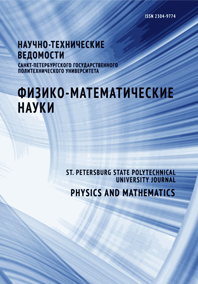Phi-meson nuclear modification factors at the lead nuclei collisions in the ALICE experiment at the LHC
Hadron spectra measurements in proton-proton and nucleus-nucleus collisions at the LHC provide the means to study the mechanisms of particle production and properties of the medium formed in relativistic heavy ion collisions. Phi-meson is a very rich probe since it is sensitive to several aspects of the collision such as strangeness enhancement, chiral symmetry restoration and parton energy loss. Due to its small inelastic cross-section, phi-meson is not strongly affected by the late hadronic rescattering and is sensitive to the initial evolution of the system. With a mass similar to that of the proton, it is interesting to see how the phi-meson fits within the meson/baryon pattern of observables. Being a pure ss state, it further constrains the energy loss and recombination pictures. This article presents recent results on phi-meson invariant yields and nuclear modification factors measured in a wide range of transverse momentum up to 21 GeV/c2 in (p + p) and (Pb + Pb) collisions at different centralities. The proton-to-(phi-meson) yield (p/phi) ratio as a function of transverse momentum in (Pb + Pb) collisions at an energy of SNN = 2.76 TeV is also presented.


